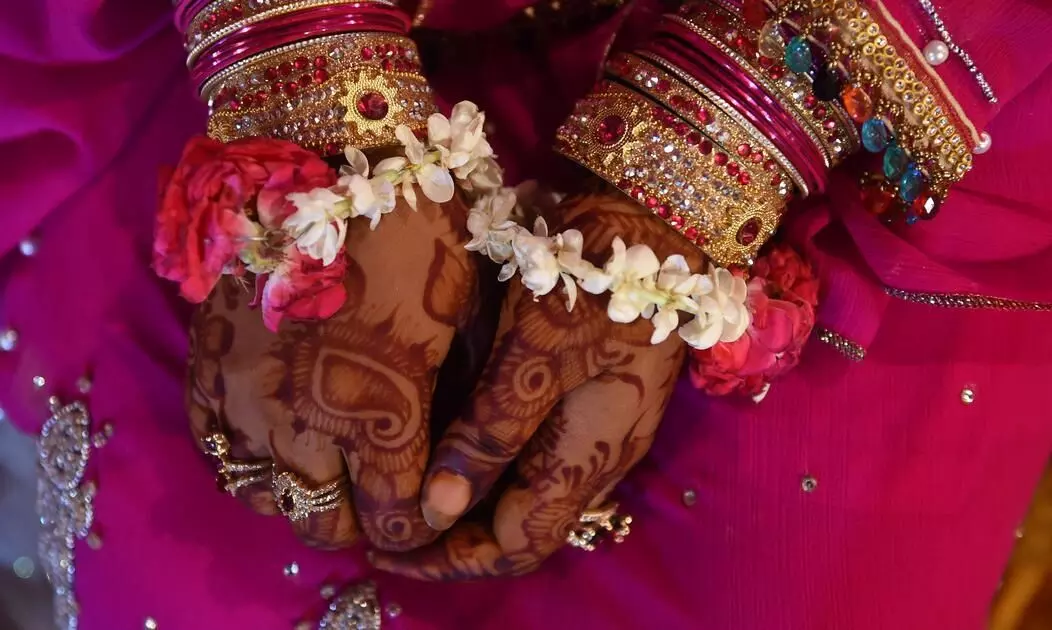
Madhya Pradesh HC dismisses interfaith marriage protection, Allahabad HC supports similar case
text_fieldsThe Madhya Pradesh High Court has rejected a plea filed by a Muslim man and a Hindu girl seeking protection to register their marriage under the Special Marriage Act, ruling that their marriage was invalid under Muslim Personal Law.
The couple approached the court to secure their safety and to facilitate their appearance before the marriage officer to register their marriage under the Special Marriage Act. Despite their intention to marry under this act, the court emphasized that a marriage between a Muslim man and a Hindu woman is not valid under Muslim Personal Law, even if registered under the SMA.
Justice Gurpal Singh Ahluwalia noted that such a union would be considered an irregular (fasid) marriage, according to Mahomedan law.
The court's decision was influenced by the fact that the couple was neither willing to live together without formal marriage nor considering conversion to the same religion. The court observed that the woman was not ready to convert to Islam, and the couple did not express an interest in a live-in relationship as an alternative to marriage. Under these circumstances, the court concluded that there was no basis for intervention and thus rejected the plea.
In contrast, the Allahabad High Court ruled in favour of another interfaith couple, granting them protection amidst threats to their safety. This couple, who were in a live-in relationship, faced opposition due to the interfaith nature of their union. They expressed their desire to marry under the SMA without converting to each other's religion.
Justice Jyotsna Sharma of the Allahabad High Court highlighted that the SMA provides a legal framework for interfaith couples to marry without the need for religious conversion. The court acknowledged that while marriage by agreement is not legally recognized, it does not preclude couples from applying for a court marriage under the SMA.
The Allahabad High Court’s decision underscored the rights of interfaith couples to marry legally without changing their faiths. The couple in this case had submitted a supplementary affidavit stating their intent to remain within their respective religions and their serious commitment to formalizing their union under the SMA.
The court, recognizing their maturity and the validity of their intent, granted them protection and instructed them to proceed with their marriage registration, requiring them to submit documentary proof in a supplementary affidavit. The next hearing for their case is scheduled for July 10.
These contrasting decisions highlight the complexities and challenges faced by interfaith couples in India. The Madhya Pradesh High Court's ruling reflects a strict interpretation of religious personal laws, whereas the Allahabad High Court’s decision aligns more closely with the secular provisions of the SMA, which allows interfaith marriages without the necessity of conversion.
The Special Marriage Act, enacted in 1954, was designed to facilitate marriages between individuals of different religions or castes without requiring them to renounce their respective faiths.
These cases underscore the ongoing struggle for interfaith couples to assert their rights within a legal framework that often intersects with deeply rooted religious laws and societal norms.























